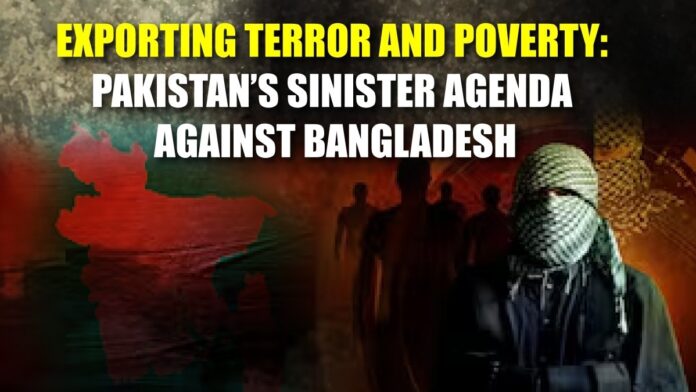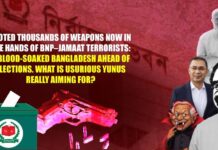The state of Pakistan was born in 1947 on the basis of divisive religious politics. From its inception, the country has been infamous on the global stage for exporting two notorious “resources”: militants and beggars. With these two weapons, Pakistan has repeatedly tried to influence its neighbors and the international community.
In its history, Pakistan’s militant exports can be traced through the Afghan war, the Kashmir conflict, and terrorist activities inside India. On the other hand, by presenting itself to the world as a “poor Muslim state,” Pakistan has repeatedly exploited global sympathy and turned begging into an almost official state policy.
The New Target: Bangladesh
As geopolitical realities shift today, Pakistan has once again set its sights on Bangladesh. Recently, they announced 500 so-called scholarships. But in reality, behind this announcement lies a sinister plan—to infiltrate Bangladesh with 50,000 trained beggars.
Why this plan? The answer lies in Pakistan’s traditional strategy. Through these two weapons—militants and beggars—they aim to destabilize the economy, society, and national security.
Economic Impact
If Pakistani beggars manage to enter Bangladesh, our local beggar community will face fierce competition. Skilled foreign beggars could dominate city streets, religious sites, railway stations, and migration hubs, pushing local beggars into unemployment.
Worse, a large portion of the money collected through begging would be funneled into Pakistan’s economy. In other words, Bangladesh’s begging money would end up strengthening Pakistan’s GDP.
Social and Security Threats
History has shown that Pakistan has often used beggars and missionary groups as cover for militants, spies, and extremists. If, under the guise of exporting beggars, they set up militant cells in Bangladesh, it would pose a grave threat to our national security.
Crisis for Local Beggar Communities
Beggar communities in Bangladesh are untrained and have no international exposure. If Pakistani-trained beggars take over the “begging market,” our local beggars will be severely harmed. Even social balance will be disrupted, as limited charity from the poor will be diverted into foreign hands.
Continuity of Tradition: Pakistan’s State Policy in Brief
• Militant production: In Afghanistan, Kashmir, and even Bangladesh, Pakistan has repeatedly attempted militant infiltration.
• Begging: By projecting itself as a poor Muslim nation, it has secured billions in international aid.
Now, in continuation of this tradition, Pakistan is planning to export beggars to Bangladesh.
We Must Be Alert—Now
• At the state level, Bangladesh must issue strong diplomatic protests against this Pakistani conspiracy.
• Border control and visa systems must be tightened to block the entry of foreign beggars.
• Local beggar communities must be organized and made aware of the threat.
• The nation must understand: this is not just an economic attack—it is a matter of social security and national dignity.
From its birth, Pakistan has depended on two weapons: militants and beggars. Today, in continuity of that tradition, Bangladesh has become their target. If we fail to resist now, tomorrow this cycle of exporting militants and beggars could devastate our national security, economy, and society.
During the era of undivided Pakistan, the ruling elite tried to brand East Bengal as a “nation of beggars.” Today, those same vultures are once again trying to push independent Bangladesh into a beggar’s project—while simultaneously ramping up their age-old militant production strategy.
The time has come to build an unyielding resistance against Pakistan’s conspiracy.





